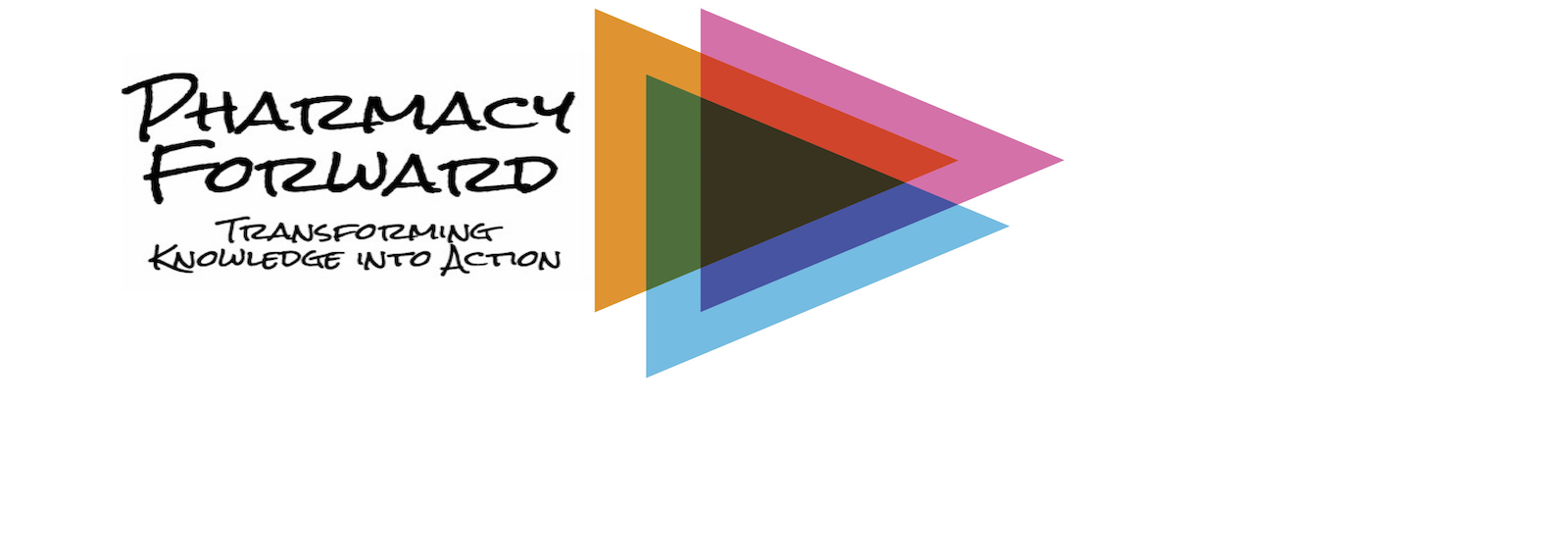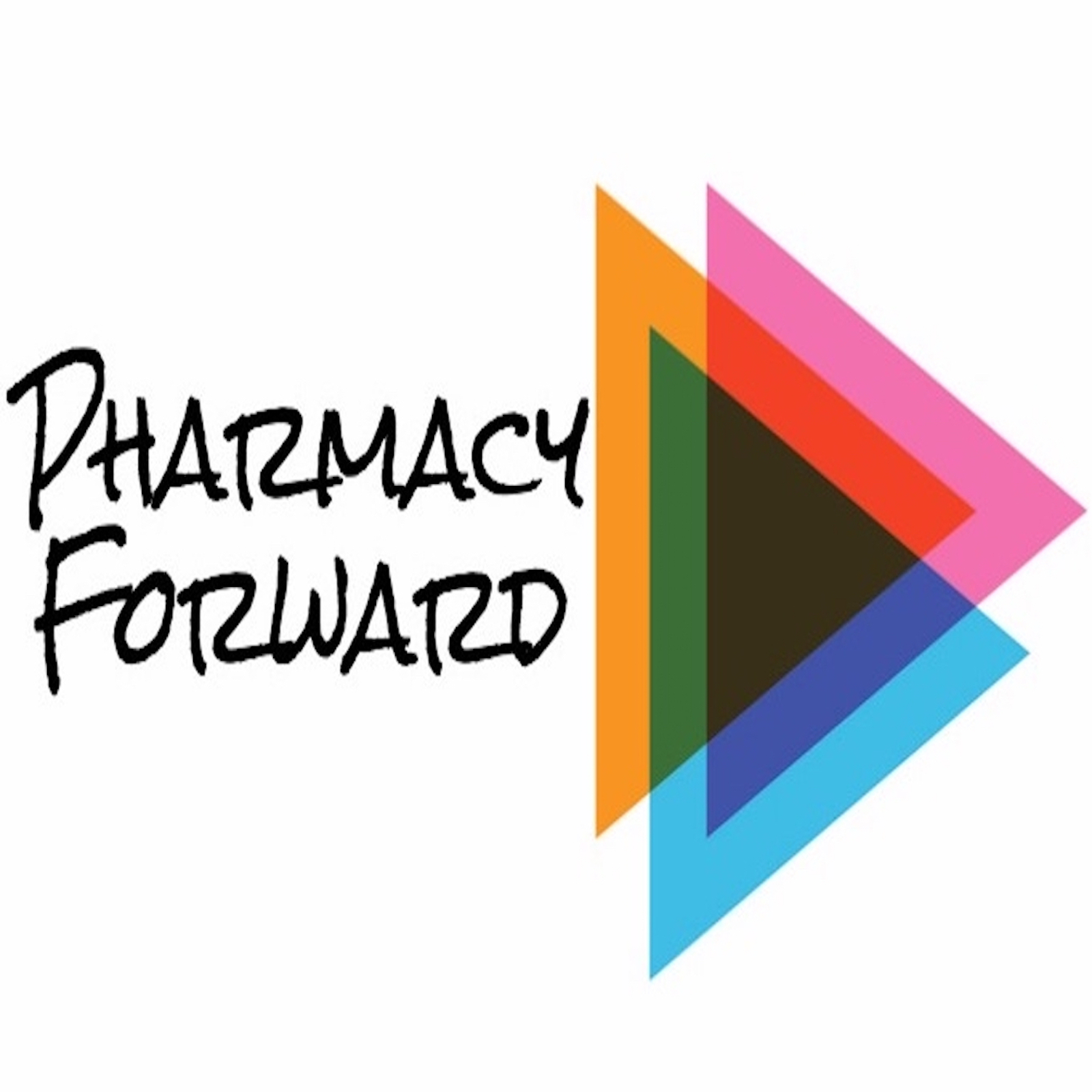Episodes

Tuesday Sep 14, 2021
Professional Identity Formation (Part 2)
Tuesday Sep 14, 2021
Tuesday Sep 14, 2021
Special Host Eric G. Boyce, PharmD - Professor of Pharmacy Practice, University of the Pacific Thomas J. Long School of Pharmacy - and Guests Alex N. Isaacs, PharmD, MS, BCPS - Clinical Associate Professor, Purdue University College of Pharmacy - and Sally A. Arif, PharmD, BCPS, BCCP - Associate Professor, Midwestern University College of Pharmacy, Downers Grove - talk with us about professional identity formation, people and events that influenced their professional identity, and the importance of reflection.
Key Lessons
- Our identities are who we are and aren't easily changed (but can and do evolved over time)
- Our lived experiences have a significant influence on our professional identity
- Role models and mentors play a critical role in our professional identity formation
- Emotional experiences have a powerful effect in shaping our beliefs and motivations
- Reflection and introspection can help us solidify and clarify our values and beliefs
- Developing a regular and ongoing reflective practice can help us think through challenges and plan for the future so that we are clear about our purpose and what aspire to be
For more information about professional identity formation, read the Report of the 2020-2021 AACP Student Affairs Committee: A Pathway to Professional Identity Formation

Tuesday Aug 17, 2021
Professional Identity Formation (Part 1)
Tuesday Aug 17, 2021
Tuesday Aug 17, 2021
Special Host Kristin Janke, PhD - Senior Associate to the Dean and Professor, University of Minnesota College of Pharmacy - and Special Guests Jessica L. Johnson, PharmD, BCPS - Associate Professor, William Carey School of Pharmacy - and Karen Kopacek, BPharm, MS - Associate Dean and Associate Professor, University of Wisconsin School of Pharmacy - talk with us about professional identity formation, how our identities are formed, and why they are important.
Key Lessons
- Our identities shape our sense of self ... which influence our values, beliefs, and actions
- All of us have multiple identities ... including a professional identity
- Professionalism and professional identity are related but distinct concepts
- Students and residents may feel uncomfortable or experience identity conflicts as they form their professional identity — assimilating the values and norms of the profession
- Our professional identities are developed through interactions with colleagues and mentors
- A strong professional identity can help counterbalance work stressors and negative emotions that lead to burnout
For more information about professional identity formation, read the Report of the 2020-2021 AACP Student Affairs Committee: A Pathway to Professional Identity Formation

Tuesday Jul 13, 2021
Getting Started with Collaborative Practice Agreements
Tuesday Jul 13, 2021
Tuesday Jul 13, 2021
Charmaine Rochester-Eyeguokan, PharmD, BCACP, CDCES - University of Maryland School of Pharmacy - and Jeffrey Tingen, PharmD, MBA, BCPS, BCACP, CDCES - VCU Health, Department of Family Medicine & Population Health - talk to use about the ins and outs of collaborative practice agreements.
Key Lessons
- Collaborative practice is governed by state law and regulations; it is important to be familiar with the specific rules for constructing collaborative practice agreements (CPA) in your state.
- Many states require pharmacists to have specific training and experience in order to enter into a CPA - but some states have relatively few requirements or none at all.
- CPAs are useful tools to enable greater efficiency by granting the pharmacist greater autonomy to carry out certain patient care functions; however, a CPA is not required to perform many functions that are ordinarily a part of a pharmacist's scope of practice.
- It's important to have a significant level of rapport and trust with your providers crafting a CPA together.
- While CPAs are fairly common in ambulatory clinics, they are a potentially useful tool in community pharmacy practice, long-term care facilities, and specialty pharmacy practice.
To learn more about collaborative practice and CPA, check out the Collaborative Practice Resource Page on the iForumRx.org website.

Tuesday Apr 13, 2021
Working Remotely - Making Remote Work, Work
Tuesday Apr 13, 2021
Tuesday Apr 13, 2021
Christie Nemoto, PharmD, BCACP - Clinical Pharmacy Specialist in The Queen's Health Systems - Queen's Clinically Integrated Physician Network (QCIPN) - talks to us about providing care to patients at a distance and creating an effective work environment at home.
Key Lessons:
- Health professionals had to learn new skills in order to deliver care to patients and interact with colleagues at a distance over the past year. Remote work became the new norm during the COVID-19 pandemic.
- Clinical care models in Hawaii have evolved over the years to support patients at a distance. Hawaii is an archipelago of islands and access to health care services is enabled by a variety of technologies.
- Pharmacists play a critical role on the healthcare team, even more so in the digital age.
- Remote communications with patients are challenging - particularly written patient education sheets and post-visit summaries.
- Clinicians need to rely on verbal clues (rather than visual clues) to ensure patient understanding.
- When working from home, it's important to create habits and routines that mimic your work at the office such as dressing professionally, starting and stopping the workday in normal work hours, creating a designated workspace, and setting ground rules with family.
- Be creative using remote activities to increase bonding and consistent communication between team members.

Thursday Feb 18, 2021
Pharmacists and Population Health
Thursday Feb 18, 2021
Thursday Feb 18, 2021
Amanda Schartel, PharmD, BCACP - Clinical Pharmacy Specialist with ChristianaCare CareVio - talks with us about the roles and responsibilities of a population health pharmacist.
Key Lessons:
- Population health involves holistically evaluating the health needs of a population and bringing together the resources and expertise needed to address those needs.
- Population health teams often include practitioners that many patients in primary care settings don't ordinarily have access including social workers, respiratory therapists, and clinical pharmacists.
- Sophisticated data analytics and remote monitoring tools help population health practitioners proactively identify patients who may need additional services or whose health status may be changing.
- Patient encounters are often conducting using videoconferencing technology and text-messaging can quickly capture patient experience data.
- The role and responsibilities of the population health pharmacist often extend beyond what an ambulatory care pharmacist might address.
- Population health pharmacists often have the authority to adjust medication regimens and order laboratory tests.
- Residency training and board certification are not required but preferred for those seeking employment as a population health pharmacist.
- The key skill sets needed by a population health pharmacist include patient management experience addressing complex medication-related issues as well as a deep knowledge of quality metrics and value-based payment structures.

Wednesday Jul 08, 2020
Social Media to Make Professional Connections (II)
Wednesday Jul 08, 2020
Wednesday Jul 08, 2020
Ashley Barlow, PharmD (MD Anderson Cancer Center) & Brooke Barlow, PharmD (University of Kentucky Chandler Medical Center) - @theABofPharmaC and PGY2 Pharmacy Practice Residents - talk to us about developing their professional brand using Twitter and why creating an online presence can help you achieve your career goals.
Key Lessons:
- Social media, especially Twitter, has become an increasingly important forum for connecting with professional colleagues and engaging in dialog about cutting edge issues that impact patient care and pharmacy practice.
- To get started, read this brief article by Robert Pugliese entitled How Twitter Has Made Me a Better Pharmacist.
- Consider maintaining separate professional and personal social media accounts.
- Instagram, Facebook, LinkedIn, and Twitter are the most commonly used social media platforms for professional networking purposes.
- Everyone should purposefully develop their professional brand online. Your digital footprint ultimately reflects your reputation.
- Your online persona is perhaps the first and most important impression that others with have of you.
- Think about the ABCDEs of your social media presence. A - align your social media with your professional goals. B - build your profile with a professional bio and photo. C - curate the content you find interesting and important. D - define your audience. E - engage in conversations ... be sure to like, comment, and retweet!
- Your online network through social media can lead to many new opportunities.
Get the Social Media Infographic by Ashley and Brooke Barlow (@theABofPharmaC)

Wednesday May 15, 2019
Credentialing & Privileging (III)
Wednesday May 15, 2019
Wednesday May 15, 2019
Brandon Shank, PharmD, BCOP - Clinical Pharmacy Specialist at the University of Texas MD Anderson Cancer Center - talks to us about credentialing & privileging from a front-line clinician's point of view.
Key Lessons:
- Building rapport and trust with your team is an essential first step from which clinical privileges follow.
- State laws vary. Some authorize privileging of pharmacists at the institutional level.
- Obtaining and maintaining clinical privileges requires additional training ... and paperwork.
- Pharmacists have a unique understanding of the dosing and available dosage forms of drugs - this brings value to the patient care team.
- Privileging pharmacists to take on advanced clinical responsibilities can increase team efficiency and effectiveness.

Tuesday Jan 02, 2018
Relationship Building to Advance Your Practice (III)
Tuesday Jan 02, 2018
Tuesday Jan 02, 2018
Dr. Jean-Venable "Kelly" Goode from the Virginia Commonwealth University (VCU) talks about relationship building in the community setting. Dr. Goode is Past-President of the American Pharmacists Association (APhA) and helped develop several innovative community-based pharmacy practices during her career. She serves as the residency program director for the highly regarded VCU Community-based Residency Program.
Key Lessons: understand the needs first, make time to meet providers in their space, consider practice model changes, and always follow through.

Tuesday Jan 02, 2018
Relationship Building to Advance Your Practice (II)
Tuesday Jan 02, 2018
Tuesday Jan 02, 2018
Sara J. White - former Director of Pharmacy at Stanford Hospitals and Clinics - talks about relationship building in hospitals and health systems. Ms. White is a Past-President of the American Society of Health-System Pharmacists (ASHP) and a Scholar-in-Residence with the ASHP Foundation in 2004.
Key Lessons: know the distinction between interactions and relationships, connect with people - not just communicate, and be visible.

Tuesday Jan 02, 2018
Relationship Building to Advance Your Practice (I)
Tuesday Jan 02, 2018
Tuesday Jan 02, 2018
Dr. Hae Mi Choe from the University of Michigan College of Pharmacy talks about relationship building in ambulatory care environments. Dr. Choe is Director of Pharmacy Innovations and Partnerships for the U-M Medical Group and lead the development of innovative pharmacy services at 14 U-M affiliated hospitals and health centers.
Key Lessons: align your goals with institutional goals, tell your patient's success story, be visible, and be persistent.

